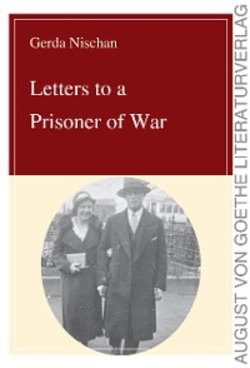Читать книгу Letters to a Prisoner of War - Gerda Nischan - Страница 5
ОглавлениеI remember that day in the 1970’s very well, that day when my parents handed me their letters. My husband and I were in Germany. He was researching at the Herzog August Library in Wolfenbüttel again for the book he was working on. I gratefully accepted the letters from my parents and took them back to America.
I had arrived on American shores in 1967 to start secretarial work at the German Consulate in Philadelphia, which had been established earlier. A few years later, I was married and moved to a college-town in North Carolina. I spent endless hours at the university library and hauled countless books home to read. As a member of the University Poetry Forum I started writing again and published poetry in small journals and even was invited to give readings of my work. I translated my parents’ letters and turned some of them into poems which were published. The idea of doing a book came much later, when my life was to take an abrupt turn again.
My beloved husband Bodo Nischan, a very respected historian, died unexpectedly of a brain tumor at the height of his academic career. His colleagues in the US and in Germany honored him with publications and dedications. I helped to some degree by providing information and unfinished manuscripts. I worked day and night in his study. Also, I established a scholarship in his name in the history Department and an endowment in the university library to make certain that his enormous research papers of more than thirty years would not be lost. I donated all to East Carolina University where my husband had taught European History for so many years.
I worked with Professor Jonathan Dembo, who was the director of the Manuscript Collection of Joyner Library at the time. We often met at my house, and one day he saw my parents’ letters, which I had just sorted and he was intrigued and fascinated. I agreed that the letters would be donated to find a permanent place in the Special Manuscript Collection as well. I began to translate them into English. I spent the summer of 2009 in Vermont doing just that. It was there the idea of a book was born. The title of the book would be “Letters to a Prisoner of War.” Back in North Carolina in the Fall of 2009 I gave several book club programs and was very surprised by the enormous interest in the story of my parents.
I have been a member of the Society for Contemporary American Literature in the German Language (SCALG) since the early 1980’s. Several of the letters written by my parents during World War II were published for the very first time in the original German language in the Spring Issue 2010 of TRANS-LIT2. In June of 2013, I was invited to become a member of PEN (International).
During my last visit to my hometown in Germany in 2009, my brother Armin Baumann, who still lives in the city of Frankenthal in the Palatinate, provided me with even more information and photos of my parents, which I gratefully accepted. I also learned from him that our father would almost certainly have ended up at the most feared Russian Front but for the lengthy dental procedure in Prague. He was assigned instead to another division and was taken prisoner in the spring of 1945 and sent to a prisoner of war camp in France, only to be released in January 1948.
Since the publication of Briefe an einen Kriegsgefangenen in Germany in 2010 more information about my father came up in family meetings in Germany; I learned in 2013 that my father, who was working in the camp in a bakery, often smuggled baked goods, such as rolls and bread, under his overalls back to his hungry comrades in the prison tent. How proud I am of my father even now!
Thanks also must be given to Gerhard Nestler of the city of Frankenthal, who had forwarded additional materials and listings of the numerous bombings on the city that I refer to in the index but have decided not to include in its entirety in the English edition.
Gerda Nischan
